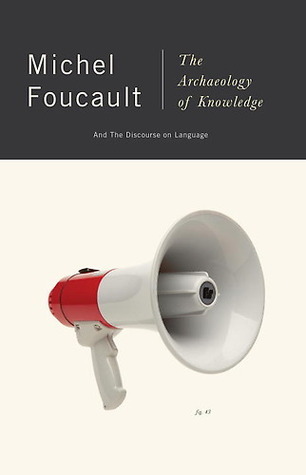
The Archaeology of Knowledge and The Discourse on Language
Book Description
What if knowledge isn’t merely a collection of facts but a powerful force shaping societies? Michel Foucault embarks on a riveting exploration of how ideas evolve, revealing the unseen structures that govern our discourse and define our reality. With razor-sharp analysis, he unravels the intricate relationship between language and power, challenging conventional beliefs and exposing the hidden agendas of knowledge production. As the layers peel away, questions of truth and authority loom large. Can we ever truly understand the narratives that rule our lives, or are we forever bound by the confines of language?
Quick Book Summary
"The Archaeology of Knowledge and The Discourse on Language" by Michel Foucault revolutionizes how we perceive knowledge, history, and the ways we construct truth. Foucault interrogates the underlying systems governing what counts as knowledge in different eras, introducing the concept of "discursive formations"—rules and structures shaping discourse beyond individual authors or texts. He challenges traditional historiography, arguing history should not merely trace events or individuals, but analyze the production and transformation of ideas within cultural frameworks. Complemented by "The Discourse on Language," Foucault scrutinizes the intricate ties between language, power, and authority, revealing knowledge as a strategic instrument that serves particular interests. Ultimately, the book invites readers to question the origins, limits, and effects of the truths underpinning our societies, exposing the subtle mechanisms that bind us to specific modes of thought and social order.
Summary of Key Ideas
Table of Contents
Discursive Formations and Archaeology
Foucault begins by critiquing conventional methods of historiography, which focus on tracing continuous lines of ideas, events, or individual thinkers. He advocates for what he calls an 'archaeology' of knowledge—a systematic analysis of the rules and structures that determine what can be said, thought, and known in particular historical periods. This method shifts attention away from authors and intentions toward the anonymous, underlying systems that govern discourse and permit certain statements, while excluding others. In doing so, Foucault reframes the task of the historian or philosopher.
The Construction of Knowledge and Truth
Central to Foucault's argument is the notion of 'discursive formations.' These are systems of rules, practices, and conventions that define what counts as knowledge in any given epoch. Rather than regarding knowledge as a collection of accumulating facts, Foucault insists that each era establishes its own criteria for validity and meaning. Discourse, then, emerges not as a transparent vehicle for truth, but as a battleground where interpretations are both constructed and constrained. By mapping these formations, Foucault offers tools for detecting the subtle shifts that redraw the boundaries of knowledge over time.
Power, Authority, and the Exclusion of Discourse
This analysis inevitably leads to a discussion of power. Foucault argues that discourse is inherently linked to mechanisms of power and exclusion. Not all statements are permitted, and institutional processes—such as academic norms, legal systems, and cultural taboos—shape which discourses are authorized or silenced. Knowledge is never neutral; its production involves strategies that legitimize some voices while marginalizing others. Through historical examples, Foucault shows how the circulation of discourse is tightly regulated, and how authority is constructed through what is said and what is unsayable.
Critique of Traditional Historiography and Methodology
“The Discourse on Language” expands these themes by focusing on the productive and restrictive capacities of language itself. Language is not merely a tool for representing reality; it is a force that structures reality, influencing how subjects, objects, and possibilities are constituted. Foucault demonstrates that access to language—who gets to speak, which forms are valued—reflects and reinforces broader configurations of power. The very act of discourse is shown to be bound up with institutional control and social hierarchy.
The Role of Language in Shaping Reality
Foucault’s work culminates in an invitation to rethink our approach to truth and history. By exposing the historical and political contingencies embedded in knowledge, he challenges readers to become more critical of grand narratives and the supposed objectivity of truth. Foucault leaves us with an enduring question: Are we capable of escaping our discursive frameworks, or does language itself define the contours of our understanding and existence? His archaeology of knowledge thus provides not just a method for scholarly inquiry, but a means of emancipatory critique.
Download This Summary
Get a free PDF of this summary instantly — no email required.





